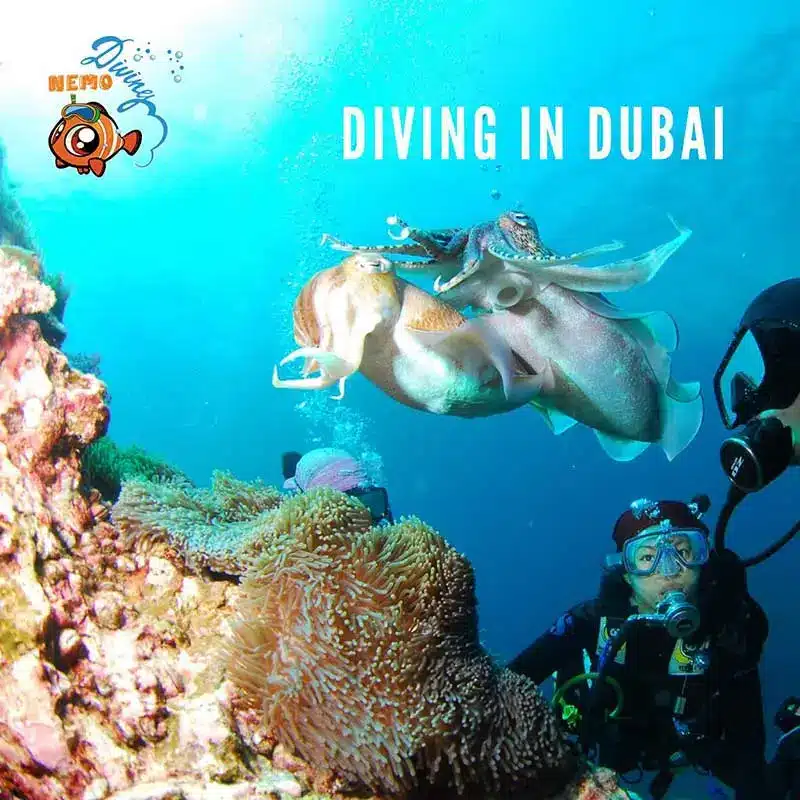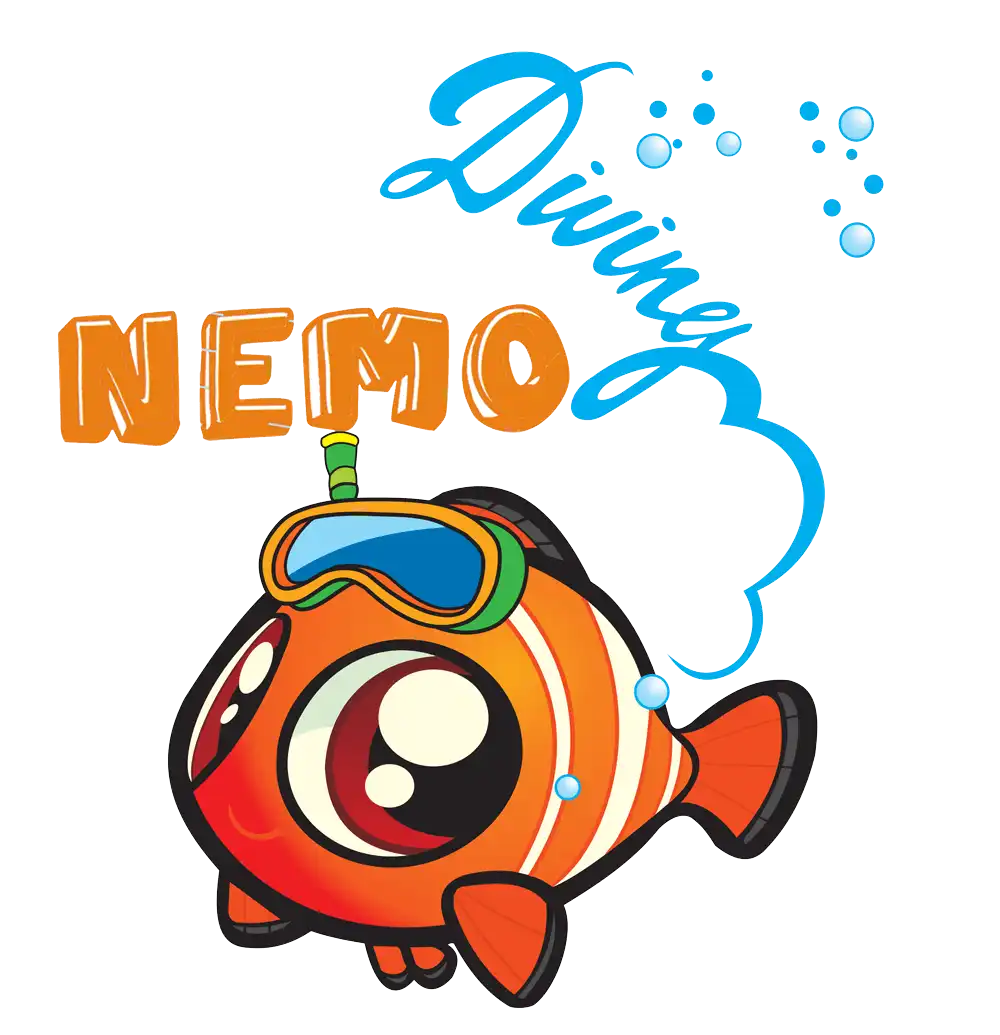

There is more to being a diver than just exploring the underwater world and encountering different kinds of marine life. Proper diving etiquette is a fundamental part of this activity that you can carry on throughout your diving life. Keep in mind that you are just a guest when you venture into a marine ecosystem. As a visitor in someone else’s home, it’s only fitting that you observe good manners.
Interacting with marine life is a responsibility that you should take seriously. At Nemo Diving Center, we teach all our divers to respect marine life. Join our scuba diving Dubai trips for a rewarding underwater experience.
Here are some friendly tips that can help promote responsible encounters with marine wildlife and protect underwater sanctuaries.
Enter the water as smoothly and quietly as possible. You might not be aware of it but sound travels better in the water. So the noise that you create when you enter the water can disturb aquatic creatures and drive them away. It’s also advisable to go slowly. Avoid creating too many bubbles as you explore your surroundings to appear less conspicuous to ocean inhabitants. The less attention you draw to yourself, the more chances you have to observe marine life.
No matter how fascinating, underwater creatures are not domesticated animals that you can touch whenever you please. After all, the sea is not a petting zoo.
Marine animals such as turtles, rays, eels, fish, octopuses, whale sharks, and other species are delicate creatures. They can easily get stressed or injured when mishandled. It’s alright to be captivated by their beauty but keep your hands to yourself.
Not touching the aquatic residents is also for your personal safety and well-being. Be aware that some underwater creatures are equipped with certain defense mechanisms and touching them can make you vulnerable to bites and stings.
Keep off the bottom to avoid accidentally stepping on bottom-dwellers like stingrays that hide under the sand.
Make sure that you’re aware of your flippers and leg movements to avoid disturbing animals, stirring up silt, and accidentally hitting a coral reef. Sometimes in the excitement, the frenzied kicking of your fins can cause irreparable damage to the corals. Establishing appropriate buoyancy control can help you have better control of your movements but this is not something that you can learn overnight. Buoyancy control takes constant practice to master that’s why the more you dive, the more opportunities you have to improve your skills. Aside from being mindful of your fins, you shouldn’t touch corals. They are fragile living organisms that can easily get damaged.
Establishing a proper distance is also another important factor in responsible marine life interactions. Although it is normal for any diver to feel the urge to go near an aquatic creature, it’s recommended to keep a comfortable distance between yourself and the subject. Keep this in mind whether it’s a single animal or group. Doing this will not only increase your chances of better interaction with underwater residents but also protect you from aggressive animals.
When you explore the ocean or sea, take only photographs but do not remove anything that belongs in the sea as a souvenir. You might be tempted to get a pretty shell or a starfish as a keepsake but gathering this kind of souvenir is prohibited in certain places. The best thing to do is to take some lovely shots and bring home memories that you can cherish for a lifetime.
Remember to observe proper manners when you venture into the aquatic world just as you would if visiting a friend’s house and chances are you’ll feel more than welcome among marine inhabitants. Happy diving!
Experiences
Find the perfect escape
© 2024 NEMO DIVING CENTER
Scuba diving is an exciting and adventurous water sport that offers a chance to explore the beauty of the underwater world and its amazing marine life. The UAE, particularly Dubai, is one of the most popular destinations for scuba diving, attracting divers from all over the world. With its crystal clear waters and diverse marine life, scuba diving in Dubai offers a unique and unforgettable experience.
The cost of scuba diving in Dubai varies depending on the dive center you choose and the type of dive you opt for. On average, a single dive can cost anywhere from AED 250 to AED 550, with the average price for a single dive being around AED 350. This price usually includes all the necessary equipment, such as the dive tank, regulator, and wetsuit, as well as the services of a professional dive guide. At Nemo Diving Center, We offer a wide range of diving packages to suit every budget and experience level.
Diving in Dubai is an incredible experience, and the UAE is home to many dive sites teeming with amazing marine life including colorful soft and hard corals, sea turtles, stingrays, manta rays, moray eels, cuttlefish, octopus, nudibranchs, seahorses, and a plethora of fish species. It is also noted for its incredible dive wrecks that have become rich artificial reefs. These dive sites offer a unique and exciting diving experience, providing a chance to explore sunken ships and other structures that have become havens for marine life.
Come and explore the unique underwater world of Palm Jumeriah in Dubai and incredible dive sites in Fujairah such as Dibba Rock, Sharm Rock, Martini Rock, Snoopy Island, and more. At Nemo Diving Center, we offer dive trips to these amazing dive sites, allowing divers to discover the incredible marine life that has made the wreck its home. We also offer a wide range of other dive sites to choose from, including shallow coral reefs, deep wrecks, and drift dives, providing something for every level of diver.
In conclusion, scuba diving in Dubai offers an unforgettable experience for all levels of diver. With its clear waters, diverse marine life, and incredible dive sites, Dubai is a must-visit destination for any scuba diver. Whether you’re a beginner or an experienced diver, our team at Nemo Diving Center will ensure that you have an amazing time exploring the beauty of the underwater world.
Click one of our contacts below to chat on WhatsApp
Social Chat is free, download and try it now here!
